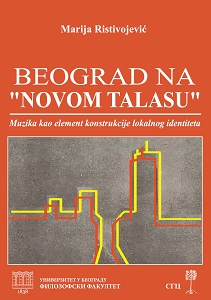Beograd na "Novom talasu". Muzika kao element konstrukcije lokalnog identiteta
Belgrade on the "New Wave". Music as an Element of Forming the Local Identity
Author(s): Marija Ristivojević
Subject(s): Anthropology, Social Sciences, Fine Arts / Performing Arts, Music, Culture and social structure
Published by: Srpski genealoški centar
Keywords: Music - anthropological aspect
Summary/Abstract: The topic of this research is understanding a two-wayrelationship between the concepts of music and place. Thehypothesis I am starting from is that music has an“ability" to create an identity of a certain space. Morespecifically, that would mean that music can have animpact on the establishing a set of images and knowledgeof a specific city through daily social interactions (such assocializing, going out, going to concerts). In this case, “anidentity of a city", comprises everything that is identifiedas an important identification mark within a specificsociocultural context and understood in that way, can bereflected in different physical places (e.g. a club, culturalcenter, café, park, square), and in various modes ofeveryday living in that particular city and in experiencesthat evolve from it (e.g. daily routes within a city, aspecific style of speech, topics for conversation). Theexample which I have chosen to analyze this relationshipon is the new wave rock-and-roll music scene in Belgradein the eighties. Although this music phenomenon is notsomething that accounts for an original local product, itpossesses its local authenticity. Therefore, my goal is toexplore the process of creating that specific Belgradeidentity, and draw attention to the features which makethe authentic local phenomenon of this musical “wave".Analyzing current narratives about this phenomenon inthe local discourse, I endeavor to identify and abstract thekey elements of the “new wave" Belgrade identity andconsider them in the light of the theories (in the first placeanthropological) which treat music and place as asociocultural (and therefore contextually dependent andfluid) categories. The analysis is based on the interviewswhich have been made during the summer of 2011.
- Print-ISBN-13: 978-86-6401-003-0
- Page Count: 308
- Publication Year: 2014
- Language: Serbian
- eBook-PDF
- Table of Content
- Introduction

